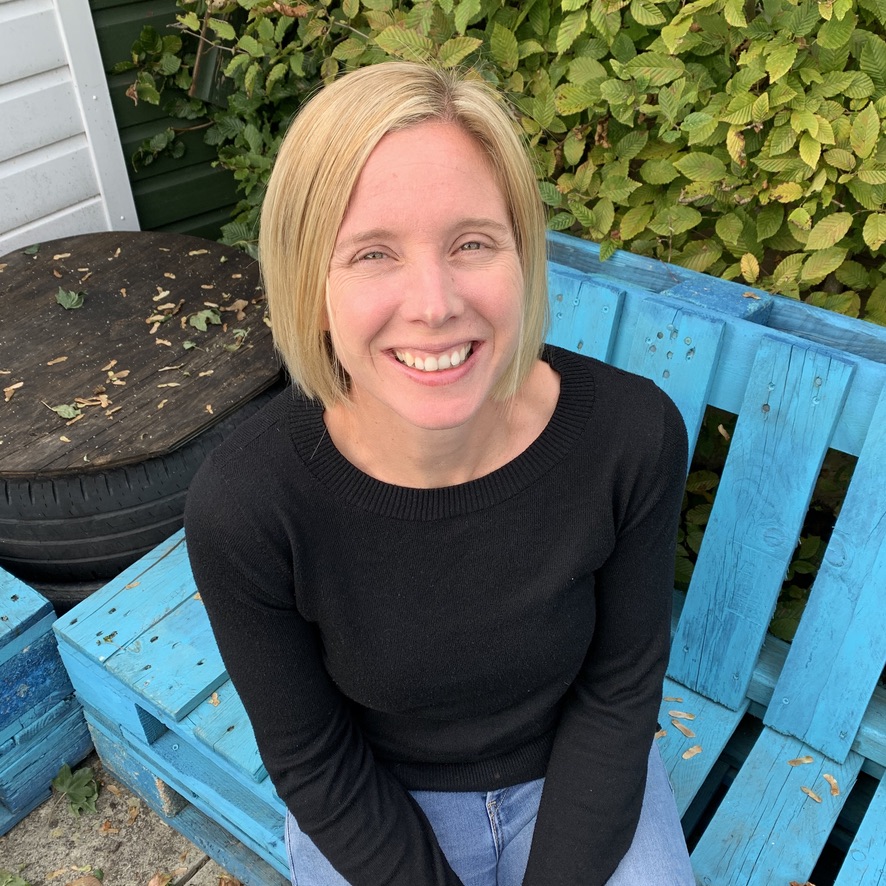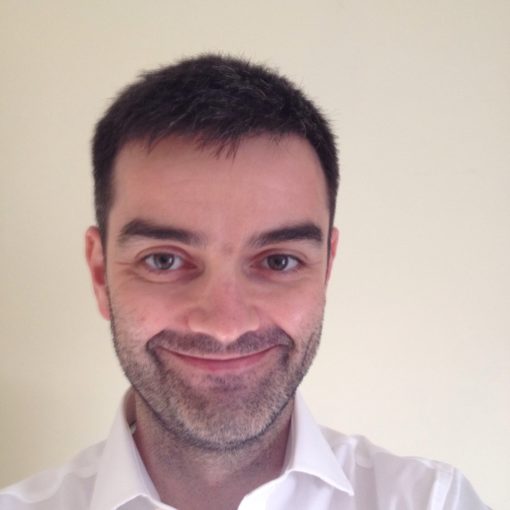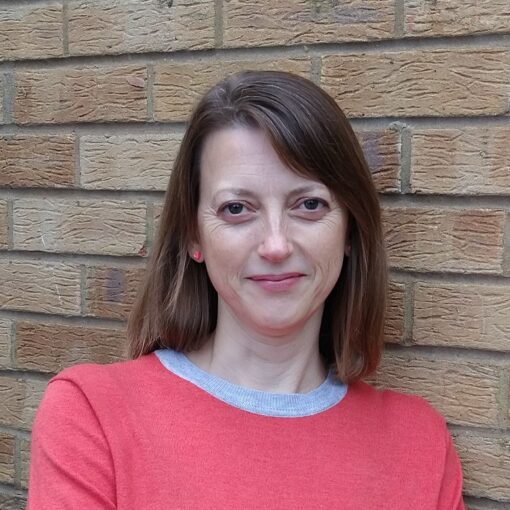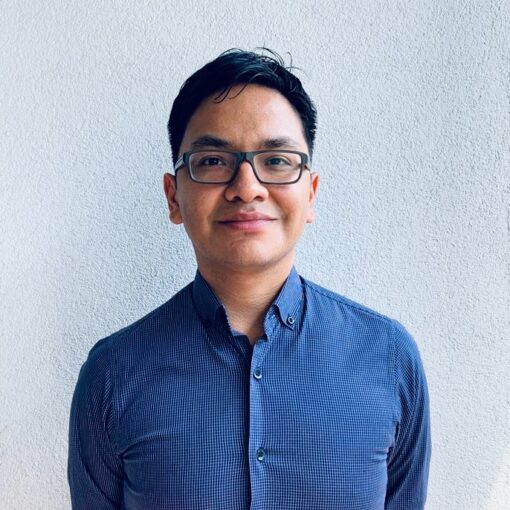PhD in Movement Science, Oxford Brookes University (2011)
| Head of Biomarker Sciences | |
|---|---|
| Perspectum Diagnostics | |
Year entered into a non-academic position: 2016
Job highlight: Seeing technology transition into a clinical pathway
My research training set me up to… break down the analysis into the question you are trying to answer, and use the resources and expertise around you
Left academia after: 5 years of postdoctoral work
What’s your background?
I did a BSc (hons) in Sports Science and Physiology at the University of Leeds in 2003 not knowing what I wanted to be. During my course I became very interested in the field of motor control and skill acquisition, which took me down a more neuroscience focused route. Following my undergrad, I took a job at Oxford Brookes University as a lab technician and demonstrator in the physiology department and was lucky enough to be working alongside Professor Helen Dawes – a renowned researcher in the field of movement science. I began supporting her research as a research assistant and was offered a PhD in the group, on a project exploring movement control difficulties and rehab strategies in people following stroke, using functional MRI. Simultaneously I was also selected to compete as an athlete on the GB lightweight women’s rowing team, which was exciting, but also a busy time. However, with the support of my fabulous supervisors (and a handy studentship for the ESRC), I was able to complete my PhD and compete at the highest sporting level.
Why did you move away from academia?
I was really unsure what to do if I am honest. I saw people going on to be successful PIs around me, but during a career’s session hosted by the university it was made pretty clear that becoming a PI was quite unlikely for the majority. I had also tried lecturing and it wasn’t for me. I had an opportunity to do a 6-month internship with Siemens in 2013, which was a great eye-opener to applied medical imaging, but after the 6 months I was still not convinced that I was ready for industry and returned to academia. I finally reached a point in 2015 where I wanted a change and the opportunity to progress, so I started applying for scientific roles in pharma and biotech companies.
Is there anything you miss about academia?
I miss the people but otherwise no.
How did you get this job? Did you face any challenges when considering a move away from academia or applying for the role?
I had gone through a round of interviews at a big pharma company when I reached out to my former boss at Siemens for career advice. He informed me of a new start up in Oxford that was developing quantitative image derived biomarkers from MRI and a few of my former colleagues at Siemens were already working there. I learnt that the CEO of this company was in fact an acquaintance I had made during my post-doc, so I sent him an email and the rest as they say…
What motivated you to/why did you choose the sector you transitioned into?
I really wanted to be able to continue working with medical imaging for the application of better understanding of disease and treatment. This move provided the perfect segue between the focused and very specific work in the lab to translating into clinic.
Did you think you had the skills required for your current position before you started? Were you right?
Absolutely not. I did not have a clue what skills I had to offer, what types of jobs I could apply for, what type of industry I could or would enjoy. It turns out – that many of the skills you learn doing research as a PhD and post-doc are transferable.
How did your PhD prepare you for your current job? For example, what were the transferable skills that you developed during your PhD that are most relevant to your current job?
My job is probably about a 70:30 ratio between data analytics and scientific communications. For me, participating in two research labs with very different focuses during my PhD meant that I had to (try to!) learn and be able to digest information from different fields, apply state of the art analysis techniques to my own data and be able to disseminate my results to varied audiences. This, in a nutshell, is exactly what I do in my day-to-day as a biomarker scientist.
Did you have any preconceptions about your sector that proved to be wrong?
I thought that most people in the workplace would have had specific training and had left their academic training knowing exactly what to do next. I was so wrong; few people have some sort of vocational and specific training for the job they actually hold. That there are so many people just like me who didn’t know what job they wanted.
Can you describe a typical week in your job?
I look after a team of 10 now and work across a few different disease indications. It’s fair to say I am in a few meetings! That said, a large part of my week is still spent working on datasets, performing applied medical statistics to explore the clinical utility of the biomarkers the Perspectum R&D team is developing. I also spend a large part of my time writing abstracts and academic manuscripts and attending scientific conferences to both learn about emerging technologies in the indications which we support, or for communicating our results to clinical and scientific audiences.
What is the workplace culture like? Please include comments on work-life balance, flexibility, remote working?
We have a young, vibrant and truly international workforce so there are always interesting conversations to be had. I work remotely 2 days a week, which allows me to collect my son from school. The company is very supportive of flexible working and understands the challenges of working and looking after a young family, so we are very lucky.
Do people with a PhD frequently get hired in the company/sector?
Absolutely, I think currently we have ¼ of the workforce with PhDs, and the company also supports good candidates to go on and do relevant PhDs as an industrial sponsor.
What are your favourite parts of your job?
Things are very fast paced and diverse. It is certainly never boring! I have had fantastic opportunities to develop in my role and in progressing with line management and to take on more senior responsibility at a pace I think was much quicker than possible in academia.
What are your reflections on your career path?
Setting out all I knew was that I wanted to be involved in developing imaging technologies to help to better understand disease and treatment strategies. I had no idea this was actually an emerging field. I am very much enjoying learning, and applying what I have learnt to aid in transitioning an image derived biomarker out of the lab and into the clinic. I look forward to continuing to learn and develop in this field.
Do you have any advice for current graduate students and postdocs considering a career outside of academia?
Don’t be put off if you are not sure what you want to do and take opportunities if they present themselves. You can always return to academia if it doesn’t work out.
What do you know now that you wish you’d known when exploring a transition?
Working in industry is not the dark side – good science is still happening it, is just often at the opposite end of the development pathway.
Can you recommend any relevant resources, organisations or events that might help somebody new to the sector find out more about it?
I found the careers services at the University of Oxford to be a good source to provide options for ‘people like me’.
 Founded in 2012, Perspectum® is a healthcare software company that uses artificial intelligence, image analysis and physics to develop innovative diagnostic solutions for metabolic disease and cancer. Perspectum’s flagship product, LiverMultiScan, is a proprietary, non-invasive, software-based solution that has proven utility and accuracy in stratifying and monitoring patients with liver disorders. With an established software platform, scientific, operational and regulatory affairs teams, the company is growing into metabolic disease, cancer diagnosis and clinical decision-support, and cardiovascular health, including leading the national COVERSCAN study to track the effects of COVID.
Founded in 2012, Perspectum® is a healthcare software company that uses artificial intelligence, image analysis and physics to develop innovative diagnostic solutions for metabolic disease and cancer. Perspectum’s flagship product, LiverMultiScan, is a proprietary, non-invasive, software-based solution that has proven utility and accuracy in stratifying and monitoring patients with liver disorders. With an established software platform, scientific, operational and regulatory affairs teams, the company is growing into metabolic disease, cancer diagnosis and clinical decision-support, and cardiovascular health, including leading the national COVERSCAN study to track the effects of COVID.





